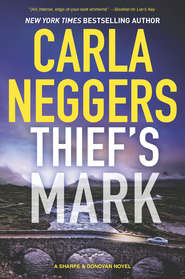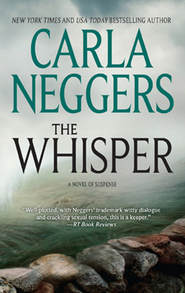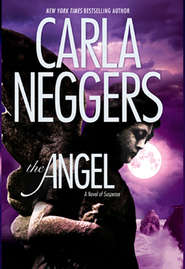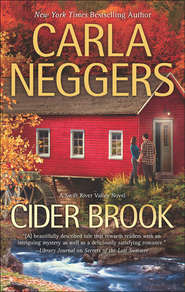По всем вопросам обращайтесь на: info@litportal.ru
(©) 2003-2024.
✖
Harbor Island
Автор
Год написания книги
2018
Настройки чтения
Размер шрифта
Высота строк
Поля
Colin knew it wasn’t. “What about you? How did you start working for Ann Bristol?”
“She’s a client. I don’t work for her. I’m an independent operator. She called my office one bright, hot, sunny Las Vegas day. A mutual friend had referred her to me. Nothing out of the ordinary. She was worried about her daughter more than about herself. I’ve done work for high-profile people. I know what I’m doing.”
“The daughter—Maisie—is okay with her mother sticking her nose in her business?”
“I didn’t say that.”
“Are you married, Mr. Palladino?”
“Nope. Never. I might get a dog, preferably one who likes the desert.” He glanced out the tall windows at the street. “I rented a room near Mass. General Hospital. I can walk from here. Can I wait there for the detectives?”
Colin shook his head. “I’ll order you more iced tea.”
“Won’t the detectives be pissed that you and Sharpe are talking to Aoife O’Byrne and me first?”
“We did them a favor.”
“Bet they won’t see it that way.”
* * *
Danny Palladino was right. The homicide detectives didn’t appreciate that two FBI agents had talked to him and Aoife O’Byrne before they could. Not a surprise, Colin thought as he followed Emma out of the Taj onto Newbury Street. The detectives also hadn’t appreciated his point that without said two FBI agents—particularly Emma—they wouldn’t have found out about Danny and Aoife as soon as they did.
Emma had been more diplomatic.
She buttoned up her jacket as two women in high-heeled boots breezed past them. “I’ve never been much of a shopper, but I could go for a Burberry coat.”
“Our friends in the BPD would love for us to go shopping.” Colin resisted the temptation to put his arm around her. They were in public, working. “I’ll start saving now and buy you a Burberry coat on our fifth anniversary.”
She grinned at him. “I’m going to hold you to that, Agent Donovan.”
He could see the strain in her eyes. “The police aren’t going to like what Aoife has to tell them, are they?”
Emma started walking up Newbury. “Aoife is in Boston as much to see me as Rachel Bristol. A stone cross arrived at her studio in Dublin on Thursday—by mail, just like the ones Granddad, Lucas, Yank and I received late last week.”
“That’s a couple days after you stopped to see her at her studio on Monday,” Colin said.
“It’s impossible to know if my visit and the cross are connected. I was careful when I went to see her. I don’t think I was followed.”
“The thief could have been watching her.”
Emma nodded. “She’s done similar crosses herself, designs inspired by the one stolen from her uncle’s house.”
Colin slowed his pace. “Emma, where is the cross Aoife received?”
“She debated calling the police in Dublin, and even my grandfather, but she had Rachel’s invitation to come to Boston and decided it would be more efficient—her exact word—to bring the cross to me herself.” Emma pulled her hands out of her pockets. “Aoife had the cross out on the desk in her suite last night when Rachel stopped by. When she went to look for it this morning, it was gone. She says she searched every inch of her suite.”
“That’s why she called you when she did.”
Emma nodded. They approached the intersection at Arlington Street. The wind picked up, blowing a few stray, brown fallen leaves on the sidewalk. Colin pictured Emma on windswept Bristol Island, alone with a dead woman with a cross in her hand identical to the ones a serial art thief had been sending to Wendell Sharpe for ten years.
“You’re not having a great day, Agent Sharpe,” he said.
She almost smiled. “You could say that. Rachel must have helped herself to Aoife’s cross last night and then called me this morning. Aoife has my number. She says she had it out on her desk last night, too. Rachel could have jotted it down or memorized it when she swiped the cross.”
“Did whoever shot her know she had the cross and didn’t care?” Colin stopped on the wide sidewalk. “Or know but didn’t have time to grab it without shooting you, too?” He gritted his teeth, not liking any of the possibilities. “Why did Rachel steal this cross? Only a handful of people know it’s the signature of a serial art thief. She wasn’t one of them.”
“Neither is Aoife. She knows only that it is similar to her uncle’s stolen cross.”
“Could Rachel have thought it was Aoife’s work?”
“Maybe, but I don’t think so.”
They walked to a light and crossed Arlington to the Public Garden. Colin wasn’t one for a lot of pondering and analyzing, but he also wasn’t one for jumping to conclusions ahead of the facts. Rachel’s killer needed to be identified and apprehended. The role of the Declan’s Cross thief—if any—in her death needed to be sorted out. The lines were blurred between the jobs of the Boston Police Department, the FBI and the Sharpes.
Not that blurred, Colin thought.
The BPD had the lead in the homicide investigation. The FBI had the lead in the investigation into the thief. They would coordinate their efforts as appropriate.
The Sharpes of Sharpe Fine Art Recovery were private citizens.
More fallen leaves blew alongside the Public Garden’s Victorian black-iron fence.
“Rachel stole the cross and called you,” Colin said. “Why?”
“My guess? She believed she knew who sent it.”
“Our thief.”
“That’s right,” Emma said quietly. “Our thief.”
6 (#ulink_80cc4601-3432-5ac8-8511-c930732582a1)
Dublin, Ireland
Matt Yankowski parked in front of what he hoped was Aoife O’Byrne’s building on the Liffey River in Dublin. Somehow, he’d managed to navigate Dublin’s maze of streets without veering into the wrong lane or the wrong direction down a one-way street. It was a bleak November evening, early by Irish standards. He turned off the engine and wipers, wondering if he should have stayed at Wendell Sharpe’s place and left Aoife O’Byrne to the Irish police. An Garda Síochána. Guardians of the Peace. The garda, or gardai—or just the guards.
A popular Irish artist in the middle of a homicide investigation in Boston.
The gardai wouldn’t like it.
Hell, he didn’t like it, either.
He got out of his little rental car and buttoned his overcoat against the cold mist. So far, the only positive of his day was that his red Micra hadn’t fallen to pieces on the drive from the southwest Irish coast to Dublin that morning. In fact, it was growing on him. It did a decent job handling any size Irish road—including roads he didn’t consider roads—and, given its size, made his occasional lapse about driving on the left slightly less terrifying.
Since arriving in Ireland earlier in the week, he’d imagined exploring back roads with Lucy, no agenda, no idea where they would have their next meal or spend the night. It’d been a long time since they’d left room for that kind of spontaneity in their lives.
“A long time,” he said under his breath.











